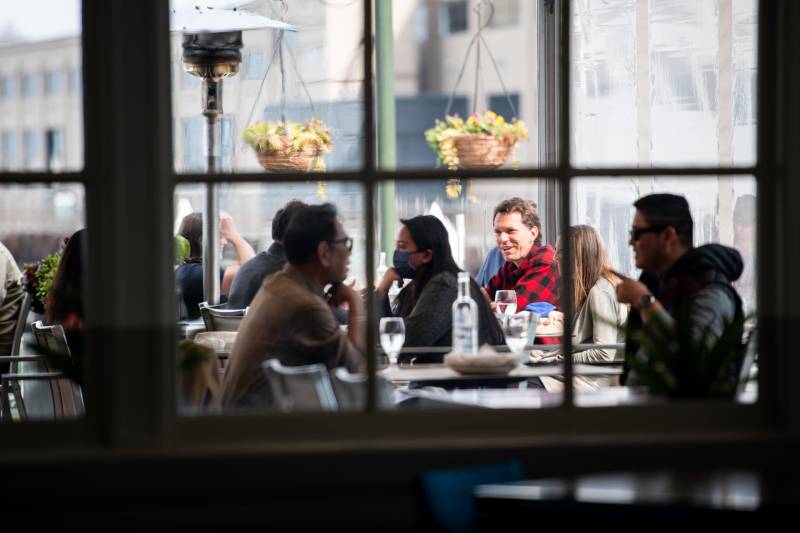Health officials in seven Bay Area counties on Friday strongly urged all residents, regardless of vaccination status, to wear masks in public indoor spaces on Friday. These counties are urging businesses to adopt masking requirements for all indoor customers.
Though coronavirus cases have steeply declined in the last six months across the country, they're now on the rise — likely due to the highly contagious delta variant. The Centers for Disease Control and Prevention reported Friday that new cases were up by nearly 70% in just a week nationwide, with hospitalizations up by 36%. Statewide, new coronavirus cases saw a 90% increase from the previous week, according to end-of-day totals on Friday. Many Bay Area counties are also seeing an uptick in cases. And in Contra Costa County, cases have more than doubled in recent weeks.
With all Bay Area counties except Napa and Solano issuing the recommendation to resume masking in public spaces indoors, KQED’s Tara Siler spoke with Dr. Monica Gandhi, infectious disease expert and professor of medicine at UCSF, about the risks and rationale behind the recent announcement.
Tara Siler: Public health officials have said vaccines are very effective against contracting serious disease or death from COVID-19. Can you explain the reasoning behind recommending that vaccinated people wear masks?
Dr. Monica Gandhi: This is actually not something that is being endorsed by the California Department of Public Health, nor does the CDC endorse the strategy because — we are really trying to stress as public health officials the effectiveness of the vaccines.
Likely, the county representatives were doing this because they wanted unvaccinated people to mask. And they likely thought that this would be a way to get everyone to mask. The worry that I have about that is, we don't want to message that these vaccines aren't effective by saying that vaccinated people have to mask. It's kind of a tricky public health messaging thing to do.
Do you think it's going to be confusing to people?
It is confusing. I've been watching the White House task force briefings very carefully — watching the messaging on masks. This has been brought up now in the last three task force briefings.

